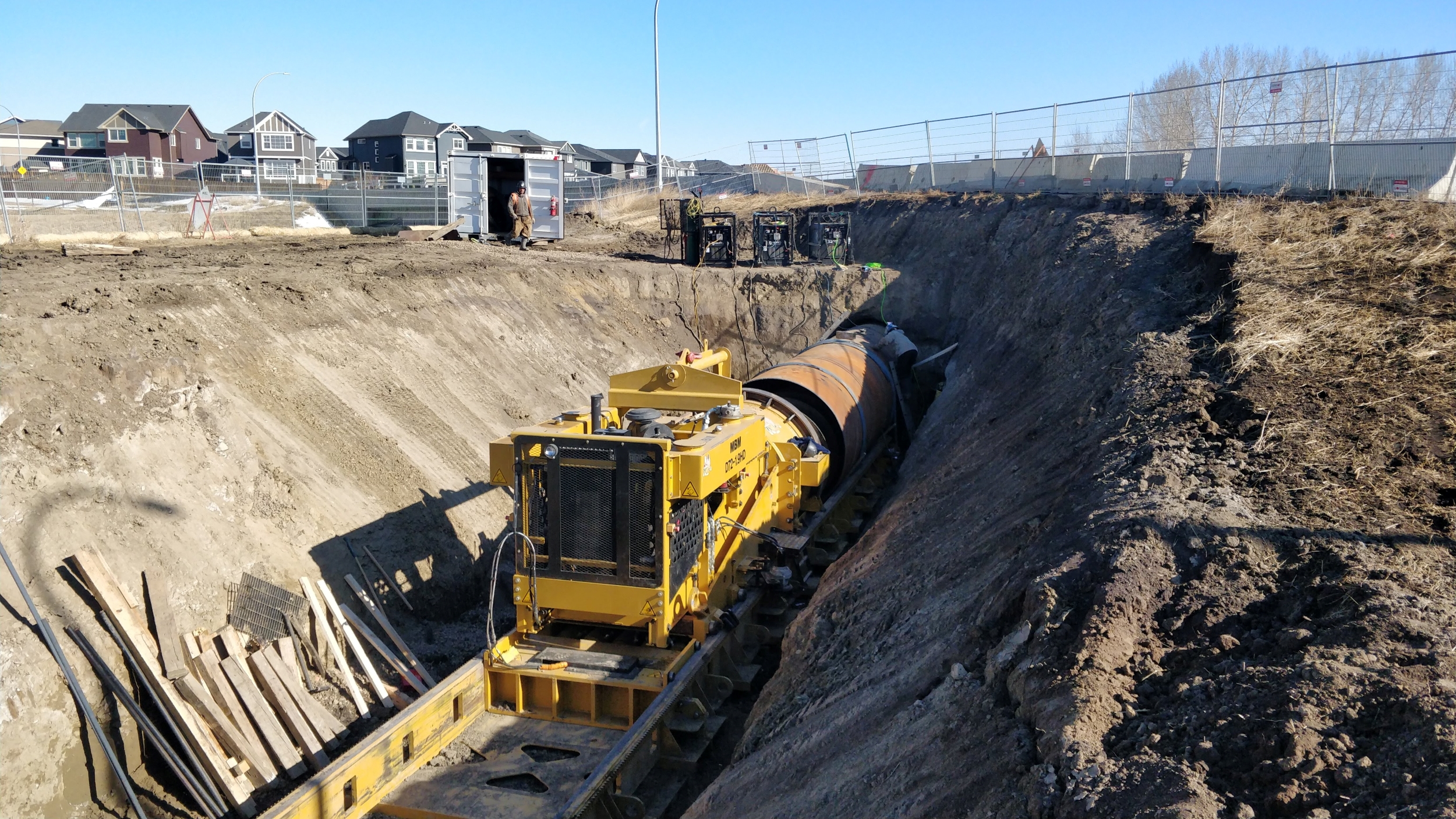The Co-operative Stormwater Management Initiative (CSMI) was recognized in the Stormwater category of the 2021 Water’s Next Awards.
Across a large tract of land spanning the Eastern edge of the City of Calgary, the Town of Strathmore and Rocky View County there are limited natural drainage courses to effectively transfer stormwater. Ongoing development in these communities, which are adjacent to and surrounding the Western Irrigation District (WID) irrigation system, has been accelerating stormwater management challenges in the area. These include creating ongoing maintenance and water quality challenges for the WID and limiting the available options for new developers to safely move runoff away from their properties.
It was clear that a long term, sustainable solution for stormwater management was needed to help municipalities grow and develop land, while also maintaining water quality in the irrigation system that supports a vibrant agricultural economy and the long-term health of nearby water resources.
In 2012, the Western Irrigation District responded to this need and spearheaded an effort to bring together five partner municipalities to develop a regional stormwater solution, now known as the Co-operative Stormwater Management Initiative (CSMI).
The CSMI is a unique initiative that will provide a process for ongoing collaboration between municipalities and the irrigation district for decades to come. Water flows across political boundaries, bringing people and organizations together to manage one of our most valuable resources. The overall sentiment reflected by the partners in this initiative seems to be that collaboration is key to the success of such a large regional project. Having all of the partners at the table with an opportunity to express their needs and desires, will be crucial to building the trust necessary to pursue solutions that work for everyone. The relationships built throughout this collaborative process will support continued economic growth, a vibrant agricultural economy, and the long-term health of regional water resources.
In addition to their collaborative governance model, the funding structure for this project is markedly innovative. Funding requirements for capital costs of the CSMI infrastructure will be raised by municipalities applying levies on new developments. Levies in the CSMI region will be collected by each municipality to help fund construction of future stages of the CSMI System.
As funds are raised through these levies, future stages of the CSMI system will be built to accommodate growth and new development. Municipalities collecting the levy dollars can use the money to help pay for municipal utility systems that directly or indirectly serve the development. Levies may be spent toward facilities such as roads, water lines/treatment/storage, sewage facilities, stormwater facilities, and other municipal services. It is recognized that long term sustainability of the CSMI stormwater system and a solution that truly benefits all partners equally relies on the advancement of future stages.
According to members of the CSMI, it has been immensely rewarding in the early stages to see the regional partners come together and collaborate effectively to develop the concept, then design and begin to build the system. This is an excellent example of an innovative solution to regional stormwater challenges that can be applied in other locations where multiple stakeholders share land and have drainage issues that are being exacerbated by development pressure.
The partners would like to thank the Government of Alberta and the Government of Canada for their funding support. Without their contribution this project would not have been possible.
This profile was written by Evan Pilkington, a seriously water-obsessed freelance writer, for the July/August 2021 issue of Water Canada. The picture for the header was taken by Chris Watson.
The nomination period for the 2022 Water’s Next Awards is now open! Learn more about the awards here.









